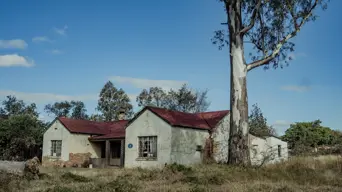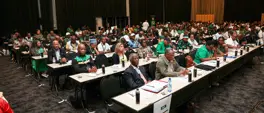Heritage sites associated with Freedom Charter neglected
Thabiso Goba
25 June 2025 | 5:18The charter was adopted during a historic congress of the people meeting in 1955 attended by political parties and formations across racial divide to create a blueprint for a democratic South Africa.

Zack Matthews' former house in Alice, in the Eastern Cape. Picture: Sphamandla Dlamini/EWN
JOHANNESBURG - As the country commemorates the 70th anniversary since the adoption of the Freedom Charter, heritage sites and landmarks attached to the event remain neglected and in ruin.
The charter was adopted during a historic congress of the people meeting in 1955, attended by political parties and formations across the racial divide to create a blueprint for a democratic South Africa.
It has been 70 years since South Africa adopted the Freedom Charter.
— Eyewitness News (@ewnupdates) June 25, 2025
Eyewitness News travelled to Alice in the Eastern Cape, where the Charter was conceptualised, and to Kliptown in Gauteng, where it was officially signed.
More on https://t.co/p8lEpOUO49 pic.twitter.com/bxFNNY9SII
In 1953, ANC Cape leader, Zack Matthews, called for an all-inclusive national convention to draw up a freedom charter for a future South Africa.
At the time, Matthews was one of the country’s most distinguished black intellectuals, teaching at the University of Fort Hare.
However, the course of history would be different if Chief Marazuli Tyali had not donated land to accommodate the university.
Matthews’ house and Chief Tyali’s gravesite were declared national heritage sites to honour their contributions towards the country’s freedom.
Both sites are currently run-down and dilapidated due to years of neglect.
Eastern Cape Premier Oscar Mabuyane said the provincial government was concerned by the state of some of its heritage sites.
"Our interest is to turn those into tourist products and destinations. So, it is in our interest to work it out and look at that as part of developing Alice. We have invested a lot in Alice, where the ZK Matthews building is. We are putting a small-town revitalisation programme there.”
Mabuyane added that renovating heritage sites was not an easy process and required authorisation from a number of government entities.
Get the whole picture 💡
Take a look at the topic timeline for all related articles.














